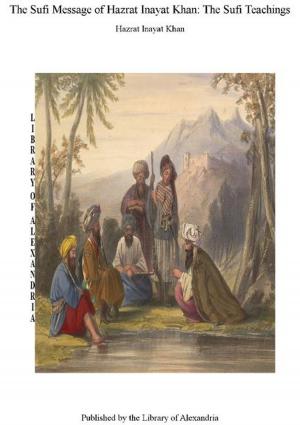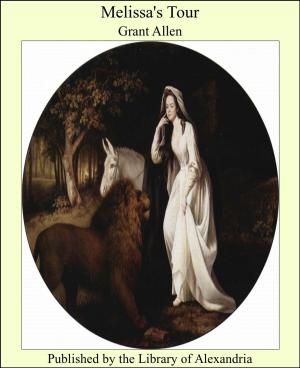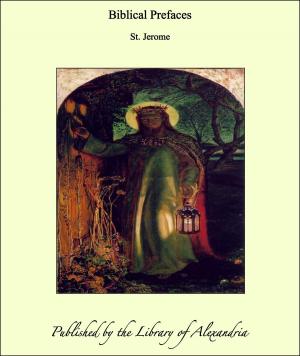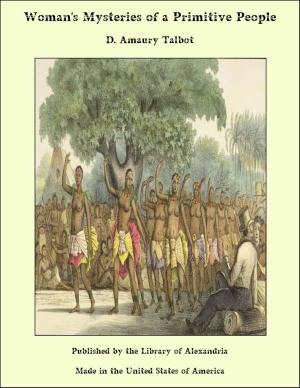| Author: | Marie Corelli | ISBN: | 9781465536846 |
| Publisher: | Library of Alexandria | Publication: | March 8, 2015 |
| Imprint: | Language: | English |
| Author: | Marie Corelli |
| ISBN: | 9781465536846 |
| Publisher: | Library of Alexandria |
| Publication: | March 8, 2015 |
| Imprint: | |
| Language: | English |
It was May-time in England. The last breath of a long winter had blown its final farewell across the hills,—the last frost had melted from the broad, low-lying fields, relaxing its iron grip from the clods of rich, red-brown earth which, now, soft and broken, were sprouting thick with the young corn's tender green. It had been a hard, inclement season. Many a time, since February onward, had the too-eagerly pushing buds of trees and shrubs been nipped by cruel cold,—many a biting east wind had withered the first pale green leaves of the lilac and the hawthorn,—and the stormy caprices of a chill northern. Spring had played havoc with all the dainty woodland blossoms that should, according to the ancient 'Shepherd's Calendar' have been flowering fully with the daffodils and primroses. But during the closing days of April a sudden grateful warmth had set in,—Nature, the divine goddess, seemed to awaken from long slumber and stretch out her arms with a happy smile,—and when May morning dawned on the world, it came as a vision of glory, robed in clear sunshine and girdled with bluest skies. Birds broke into enraptured song,—young almond and apple boughs quivered almost visibly every moment into pink and white bloom,—cowslips and bluebells raised their heads from mossy corners in the grass, and expressed their innocent thoughts in sweetest odour—and in and through all things the glorious thrill, the mysterious joy of renewed life, hope and love pulsated from the Creator to His responsive creation. It was May-time;—a real 'old-fashioned' English May, such as Spenser and Herrick sang of: "When all is yclad With blossoms; the ground with grass, the woodes With greene leaves; the bushes with blossoming buddes," and when whatever promise our existence yet holds for us, seems far enough away to inspire ambition, yet close enough to encourage fair dreams of fulfilment. To experience this glamour and witchery of the flowering-time of the year, one must, perforce, be in the country. For in the towns, the breath of Spring is foetid and feverish,—it arouses sick longings and weary regrets, but scarcely any positive ecstasy. The close, stuffy streets, the swarming people, the high buildings and stacks of chimneys which only permit the narrowest patches of sky to be visible, the incessant noise and movement, the self-absorbed crowding and crushing,—all these things are so many offences to Nature, and are as dead walls of obstacle set against the revivifying and strengthening forces with which she endows her freer children of the forest, field and mountain. Out on the wild heathery moorland, in the heart of the woods, in the deep bosky dells, where the pungent scent of moss and pine-boughs fills the air with invigorating influences, or by the quiet rivers, flowing peacefully under bending willows and past wide osier-beds, where the kingfisher swoops down with the sun-ray and the timid moor-hen paddles to and from her nest among the reeds,—in such haunts as these, the advent of a warm and brilliant May is fraught with that tremor of delight which gives birth to beauty, and concerning which that ancient and picturesque chronicler, Sir Thomas Malory, writes exultantly: "Like as May moneth flourisheth and flowerth in many gardens, so in likewise let every man of worship flourish his heart in this world
It was May-time in England. The last breath of a long winter had blown its final farewell across the hills,—the last frost had melted from the broad, low-lying fields, relaxing its iron grip from the clods of rich, red-brown earth which, now, soft and broken, were sprouting thick with the young corn's tender green. It had been a hard, inclement season. Many a time, since February onward, had the too-eagerly pushing buds of trees and shrubs been nipped by cruel cold,—many a biting east wind had withered the first pale green leaves of the lilac and the hawthorn,—and the stormy caprices of a chill northern. Spring had played havoc with all the dainty woodland blossoms that should, according to the ancient 'Shepherd's Calendar' have been flowering fully with the daffodils and primroses. But during the closing days of April a sudden grateful warmth had set in,—Nature, the divine goddess, seemed to awaken from long slumber and stretch out her arms with a happy smile,—and when May morning dawned on the world, it came as a vision of glory, robed in clear sunshine and girdled with bluest skies. Birds broke into enraptured song,—young almond and apple boughs quivered almost visibly every moment into pink and white bloom,—cowslips and bluebells raised their heads from mossy corners in the grass, and expressed their innocent thoughts in sweetest odour—and in and through all things the glorious thrill, the mysterious joy of renewed life, hope and love pulsated from the Creator to His responsive creation. It was May-time;—a real 'old-fashioned' English May, such as Spenser and Herrick sang of: "When all is yclad With blossoms; the ground with grass, the woodes With greene leaves; the bushes with blossoming buddes," and when whatever promise our existence yet holds for us, seems far enough away to inspire ambition, yet close enough to encourage fair dreams of fulfilment. To experience this glamour and witchery of the flowering-time of the year, one must, perforce, be in the country. For in the towns, the breath of Spring is foetid and feverish,—it arouses sick longings and weary regrets, but scarcely any positive ecstasy. The close, stuffy streets, the swarming people, the high buildings and stacks of chimneys which only permit the narrowest patches of sky to be visible, the incessant noise and movement, the self-absorbed crowding and crushing,—all these things are so many offences to Nature, and are as dead walls of obstacle set against the revivifying and strengthening forces with which she endows her freer children of the forest, field and mountain. Out on the wild heathery moorland, in the heart of the woods, in the deep bosky dells, where the pungent scent of moss and pine-boughs fills the air with invigorating influences, or by the quiet rivers, flowing peacefully under bending willows and past wide osier-beds, where the kingfisher swoops down with the sun-ray and the timid moor-hen paddles to and from her nest among the reeds,—in such haunts as these, the advent of a warm and brilliant May is fraught with that tremor of delight which gives birth to beauty, and concerning which that ancient and picturesque chronicler, Sir Thomas Malory, writes exultantly: "Like as May moneth flourisheth and flowerth in many gardens, so in likewise let every man of worship flourish his heart in this world















